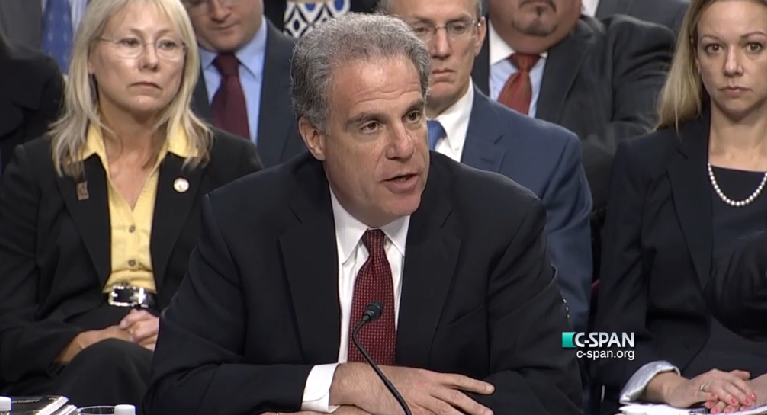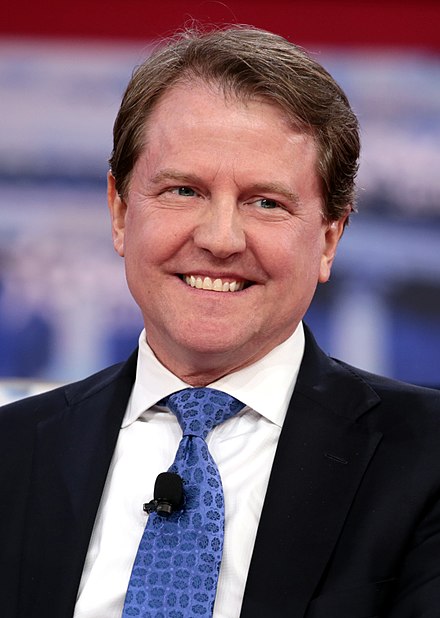DOJ’s Inspector General (and 70 Colleagues) Says DOJ’s Lawyers Fucked Up
On Tuesday, the Council of Inspectors General on Integrity and Efficiency just sent OLC head Steve Engel a scathing letter criticizing his opinion that Acting Director of National Intelligence Joseph Maguire could not share the whistleblower complaint about President Trump’s July 25 phone call with Volodymyr with Congress. Generally, its content says about what you’d think:
- ICIG was right to complain about OLC’s decision in a September 17 letter
- ICIG was about DNI’s jurisdiction over federal elections and classification of information
- OLC’s opinion could impair whistleblowing
- OLC’s opinion deviates from Congressional intent on IC statutes, as backed by both Chuck Grassley and Mark Warner
- OLC did not raise any valid constitutional concern, but instead simply substituted its judgment for the ICIG’s
But I’m more interested in what it means that CIGIE’s Chair, Michael Horowitz, wrote it. Horowitz also happens to be DOJ’s Inspector General, the same guy Bill Barr has loaded up with investigations designed to take down Trump’s critics, someone whom the frothy right has invested a lot of their respect.
Don’t get me wrong. I’m sure Horowitz would have written the letter in any case, even if he weren’t DOJ IG. He’s a fierce protector of IG prerogatives, which is one reason why he’s the Chair.
Horowitz is also a brilliant tactician who has used his positions–both as DOJ IG and as CIGIE head–to assert his authority. Just as one very key example, after a several year fight with FBI, he managed to get broad access to FBI’s files for IG investigations. In another example, he managed to investigate lawyer Jim Comey (in his administrative role) even though generally such investigations get done by DOJ’s Office of Professional Responsibility.
And I view this letter, in addition to being a very public and powerful stand on an important principle, as a tactic. One thing the letter does, for example, is lay out that a top DOJ lawyer violated Congress’ intent on how Inspectors General are supposed to work. That’s the kind of thing that — if my years of watching Horowitz are any indication — we may hear the next time Horowitz testifies about his work and the scope of DOJ’s IG, which is limited in ways that other IGs aren’t.
More interesting, given the abundant proof that DOJ worked hard to avoid connecting the dots on this complaint, is Horowitz’s footnote noting that DOJ and FBI have responsibilities to investigation interference in our elections seems
The fact that other parts of the government, such as the Federal Bureau of Investigation and the Department of Justice, also have responsibilities in this area does not divest the DNI of such duties as a matter of law or practice.
Horowitz may not have the authority to investigate Steve Engel, but he does have the authority to investigate the people who found ways not to investigate this complaint competently, and his concern on OLC may reflect a concern on what else happened at DOJ.
Horowitz also maps out broad authority for ICIG to continue to investigating both the allegation itself and (importantly), the misuse of the Top Secret server to hide other problematic call transcripts.
These responsibilities support the ICIG’s conclusion that the protection of federal elections from foreign interference is squarely within the DNI’s “operations”. The legal authorities cited in his letter also support the ICIG’s determination that the whistleblower raised a claim of a serious or flagrant problem that relates to an intelligence activity within the DNI’s jurisdiction. It surely cannot be the case that the DNI has responsibilities related to foreign election interference but is prohibited from reviewing the cause of any such alleged interference.
We further note that the DNI has jurisdiction over the handling of classified and other sensitive information. As a result, the whistleblower’s allegation that certain officials may have misused an intelligence system also raises an additional claim of a serious or flagrant problem that relates to the operations of the DNI and therefore may properly be considered an urgent concern under the statute.
We actually don’t know whether ICIG has continued to investigate this issue. But Horowitz lays out the case that he has the authority to.
Finally, Horowitz focuses on the delay that OLC’s opinion had, preventing Congress from learning about the complaint by September 2 (when, by law, they should have received the whistleblower complaint).
As Congress has done in every other whistleblower law passed since 1978, it entrusted IGs to play a central role in the evaluation of the information provided. Specifically, the ICWPA requires an IG to make within 14 days a factual determination as to whether an alleged urgent concern provided to the IG “appears credible.” If the IG determines that the allegation appears credible, which necessarily includes a determination by the IG that it involves an “urgent concern,” the IG is required to forward the allegation to the head of the agency and the agency head “shall” forward it to Congress within 7 days “with any comments.” The ICWPA’s use of the word “shall” makes it clear that the statute does not authorize the agency head, or any other party for that matter, to review or second-guess an IG’s good faith determination that a complaint meets the ICWPA’s statutory language.
Congress only received the complaint on September 25, an illegal delay of 23 days, during which time Trump released the withheld funds and had a meeting with a much-weakened Zelensky, to say nothing of whatever meetings Rudy and Bill Barr had in the interim. While it’s unlikely to happen, Horowitz’s language at least lays out the clear impact of Engel’s opinion in obstructing Congress’ ability to be able to deal with this issue in timely fashion.
Thus far, the American public has had little success at disciplining OLC lawyers for the bullshit they cause (though even courts are inching closer to doing so). This letter seems, to me, like the first step in an attempt by Horowitz to be able to do so.



